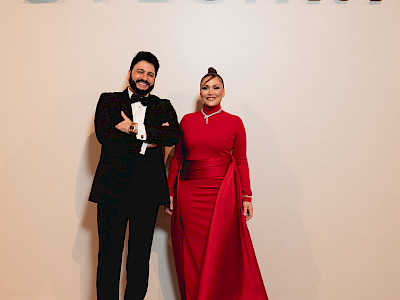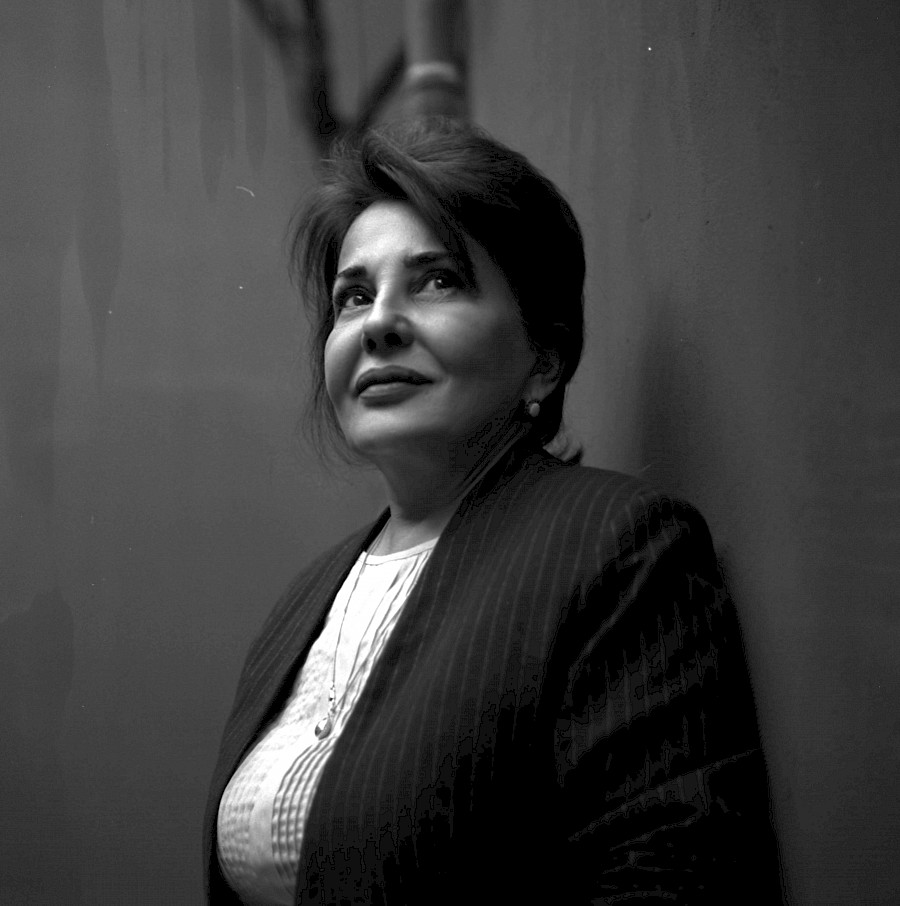
Domestic violence remains one of the most undervalued types of crime in the world: the victim's relatives usually keep quiet about the abuse, happening in the family, and even medical workers can manipulate facts and hide traces of torture − with the best intentions, you'd think: for the sake of saving the family. After all, the family in Azerbaijan is traditionally the biggest life value. According to State Committee on Statistics of Azerbaijan, 1,175 cases of domestic violence were recorded in our country in 2018, resulting in 47 deaths. Women and children, of course, are the most likely to suffer. It is very scary to be a victim of violence, but it is even worse to end up in a desperate situation with no hope, no support and when you've got nowhere to go. Fortunately, there are many indifferent people living in our country who are ready to lend a hand even in such a seemingly hopeless situation. One of such people is Mehriban Zeynalova, chairman of Təmiz Dünya (“Clean World”) Aid to Women and Children Public Union. In 2002, she founded a shelter for victims of domestic violence, where they receive specific legal and psychological assistance other than a roof over their heads.
Mehriban khanum, please tell us about the shelter. What assistance can a woman receive in this asylum?
First of all, I would like to emphasize that women come to our shelter for various reasons, because each of them has her own worldview, emotional intelligence and perception of events. Sometimes we are asked: why do you accept women who have not been physically injured to the shelter? This is the wrong approach. There are women, who are beaten daily, and they humbly tolerate all beatings and humiliation, sometimes without even assuming that such "angelic patience" can result in death for them. But there are women who initially do not accept humiliation, and they, without waiting for physical abuse, come to us. These women want a simple thing: to be free and to live apart from such relatives.
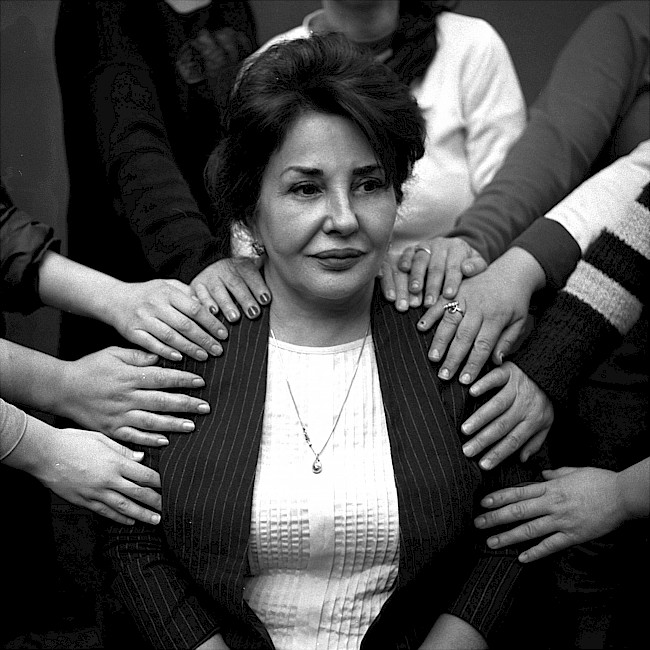
Our shelter "Clean World" for Women and Children operates since 2002. It has nine employees, including a psychologist, a lawyer, social workers and management. When a new victim arrives, all of them are amicably involved in the process: it is necessary to assess the psychological condition of the victim, listen to her problem and try to solve it. We ask questions about the family, socio-economic situation, relatives, education, hereditary diseases, etc. − in short, we try to identify and take into account all the details for a more reliable assessment of the difficult situation.
There are women and children who are found on the street and brought to us by the police. In that case, we are looking for relatives, trying to find out why the victims ended up on the street, and doing everything in our power to help. I would like to emphasize that we are very much supported by public authorities in this regard. We work closely with the Ministry of Internal Affairs, The Ministry of Healthcare, Ministry of Labour and Social Protection and the Ministry of Education. Most women entering the shelter are then employed through the Ministry of Labour and Social Protection, and the Ministry of Internal Affairs helps us to solve their safety issue. Thanks to the Ministry of Health, women and children can access health facilities if necessary, and the Ministry of Education provides our children-wards with the opportunity to attend schools nearby. By the way, we attach great importance to mandatory education not only for children, but also for women, among who could often be found poorly educated women. Volunteers, Russian and English teachers help us with this very much.
How often do women who have not yet been victims, but who have felt that tragedy can happen, turn to the Centre?
Quite often. Sometimes women seek help, feeling danger already at the threat level. We send their husbands to a psychologist so that the specialist can express his opinion: whether there is really such danger. Sometimes talking to a psychologist brings a positive result, but there are men who thoroughly hide their inner world and feelings, and there are also those who refuse to meet with a psychologist. But before that we talk to a woman a lot and draw conclusions from our own observations − it allows us to understand what or who the problem lies in.
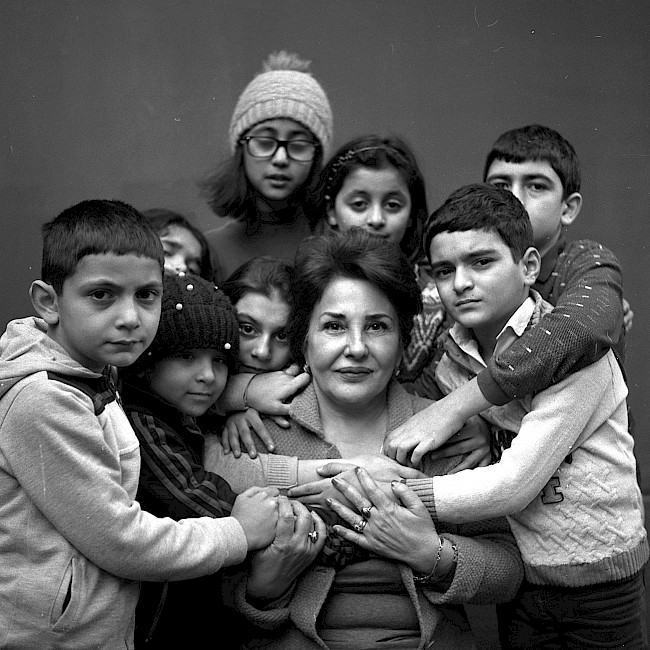
Is it possible to "re-educate" such man without the help of specialists?
For the most of our men, assault on a woman is a following of "traditions" instilled since childhood. This way it is easier for him to control his wife, and he does not know any other way to demonstrate his superiority in the family. And there are men who openly hate women, they do not hesitate to act especially brutally. All these behavioral factors are most often associated with negative childhood experience that traumatizes consciousness, some of the shocks experienced at an early stage of a man's life, the causes may be very different. Men, like women, have different personality traits, psychotype and emotional intelligence, which should be taken into account. But in some cases, the woman herself provokes violence. We women are used to taking care of everything. The motives of that are well-intentioned, but men quickly get used to this situation, And over the years, the burden increases, and one day this woman understands, that she could no longer carry this alone: other than house chores, grocery shopping, taking child to daycare or school, solving household issues. We all know that in our families all this lies entirely and completely on the woman's shoulders! We live with the thought of having to stand everything for our children. But over time, there are serious problems in relationships, and all this because family roles have not been properly distributed on time, the parties cannot or do not want to understand each other and never discuss their problems with each other.
What, in your opinion, mostly causes men's aggressive behavior?
We also have another tradition - the burden of the main family problems man usually carries alone and does not share thoughts with the companion of his life. It is believed that the husband should provide for the wife, and how − it is his problem. Some wives also consider the dealing with all family and household issues as the prerogative of the husband, and that their only duty is upbringing of children. And everyone does their job, but there comes a moment when a man realizes that he needs a real partner, an interesting company: he badly needs open discussion, understanding, spiritual completeness of life... And we women often do not realize that we humiliate a man, comparing him to others and causing his aggression. And the more often the wife "nags" her husband, blaming for failing to provide for the family, the more he seeks to be where he will be respected and understood. And this is how spousal infidelities come up..
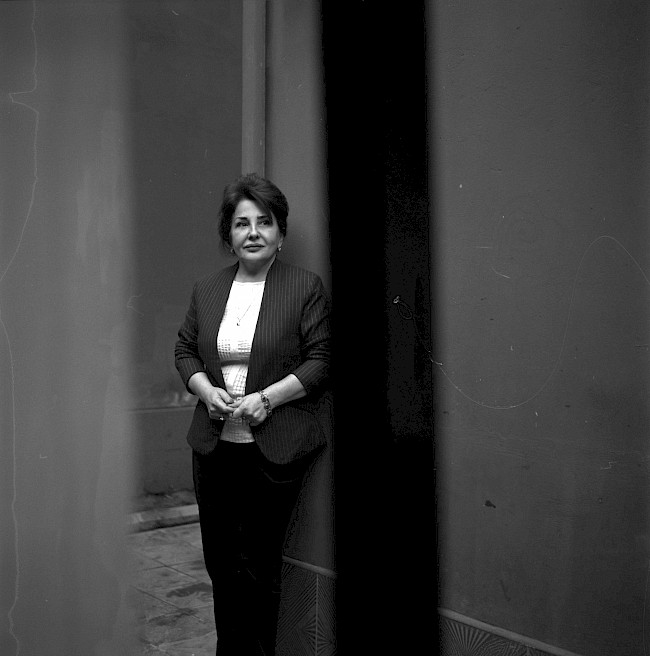
What would you recommend to women who are yet preparing for family life and those who are already looking for solutions to their family problems?
It is very difficult to recommend something, because every family is a small state, with its own laws, traditions and rules of intra-family communication. But in any case, a woman should not put an unsustainable burden on herself, she should be able to say "no" if necessary, and openly talk to a partner about what she cares about, talk about all issues. And it is necessary to start even before marriage. Sometimes they say that our men are more comfortable living with foreigners. And the thing is that foreigners from the first day position themselves as who they really are, when we are used to hiding our feelings and thoughts, creating some fictional, ideal image, but after some time, when this image fades and real traits appear − then the conflicts begin, often leading to divorce. Based on many years of my experience, I have come to conclusion that contrary to general opinion, a woman must work in order to be economically independent. This does not mean that each of the spouses should have their own money and spend it at their own discretion: it is also very important to learn to manage the family budget together.
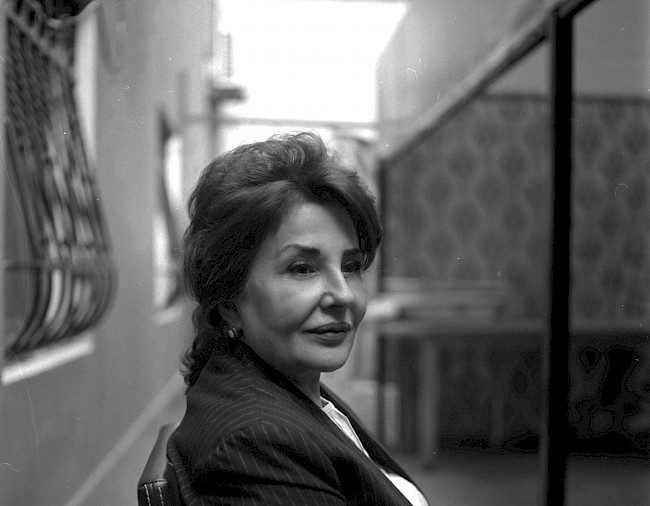
How do you see a systematic solution to the problem of violence against women in Azerbaijan?
The topic of domestic violence is now on the agenda of all civilized countries. At its 64th session in 2020 the UN Commission on the Status of Women will review and assess the adoption of the Beijing Declaration and Platform for Action, their contributions and also outstanding tasks. The signs of a systematic solution to this problem can be seen in our country as well. Including our shelter, where I managed to build a system whereby the problems of women coming to us are carefully studied and information is sent to the relevant public authorities − all these structures, for their part, support our work. But even in this worked-out mechanism there is a certain problem in coordination that needs to be fixed. The guests of our shelter are women and children who have been abused. We have our own internal laws ensuring the safety of our wards. For example, we do not accept boys over the age of 11-12 and are selective towards photography and video materials.
Another important public problem is to maximize the effectiveness of dealing with children in difficult situations. There are families who cannot raise their children normally and give them the full attention and care they need. It is no secret that many children from disadvantaged families have mental disorders due to persistent domestic violence. It takes months to transfer such children from their families to public institutions. But at the time of the violence against the child, if information about it is received by hotline, the child is removed from the family within 24 hours: if this is not done immediately and the child is not protected from aggression, it can end very badly! And even if a child somehow survives in such a family, but is constantly subjected to violence, in the future he has every chance to become a criminal or beggar. Many people think that children forget everything quickly, but it is not true at all! The terrible negative situation leaves an indelible mark in child's mind and can form distorted moral values, not to mention inadequate behaviour.

We are working hard to solve the problem of every resident of our shelter. There are women who would like to stay with us, but we believe that it will harm them: in such case, a woman becomes dependent on her asylum, her integration into society becomes difficult, and her fears only grow. We try to prepare our wards for independent life and now we prepare the new program of integration into society Özçətir.
My observations show that most women, instead of creating their own "umbrella", try to hide under one "umbrella" with someone else − they parents or husband. One way or another, a woman starting to live and work on her own should keep her children under her "umbrella", despite everything, although it is not easy... — N



